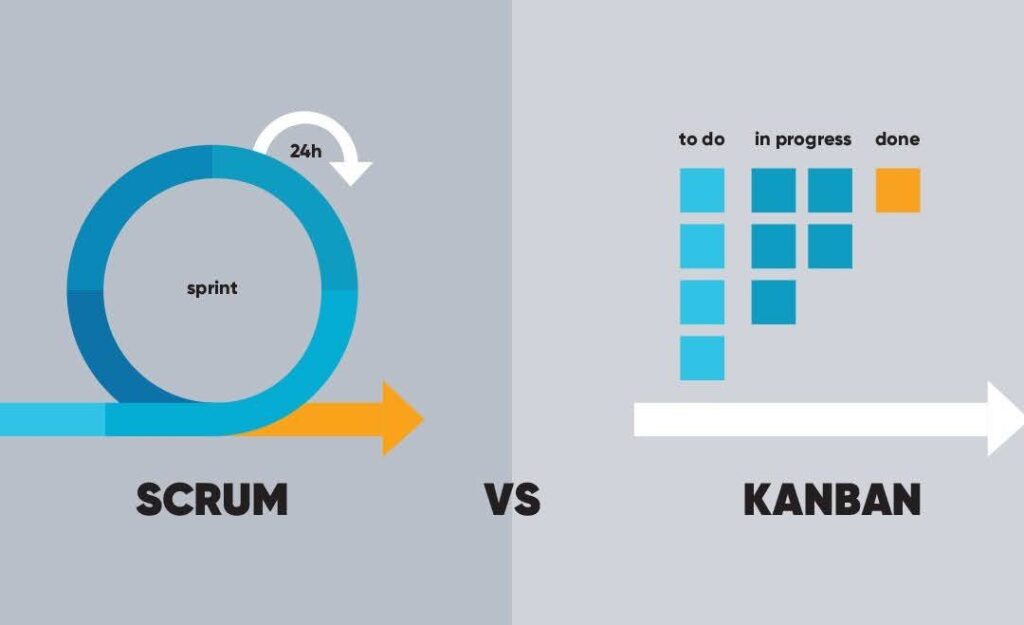In the fast-paced world of startup software development, effective project management is the key to turning ambitious ideas into successful, functioning products. It’s a delicate balancing act—combining speed, innovation, and agility while avoiding chaos, budget overruns, or missed deadlines. As startups often work under tight deadlines and constrained resources, mastering project management can make or break your product’s journey to market.
Here’s a roadmap to guide you through the essentials of managing software development projects for startups, with insights, best practices, and tips to navigate the challenges that come your way, and curated by the Capsoft team.
1. Set Clear Goals and Milestones
It’s easy to get swept up in the excitement of building your startup’s next big thing, but clarity on what you’re building—and why—is essential. Establishing clear goals at the beginning aligns the team and provides direction throughout the project. This also helps to avoid scope creep, where new ideas continuously push the project beyond its original deadline.
⭐️ Pro Tip: Use the SMART framework (Specific, Measurable, Achievable, Relevant, Time-bound) to create well-defined project goals. When the team knows what success looks like, they can focus their efforts on delivering it.
Break these goals down into actionable milestones. These serve as checkpoints, allowing your team to track progress and course-correct if needed. This also provides opportunities to celebrate small wins, boosting team morale and keeping everyone engaged.
2. Choose the Right Development Methodology
The right methodology can be the difference between smooth sailing and a development disaster. For startups, agile methodologies like Scrum or Kanban are often the go-to, offering flexibility to adapt to changes and iterate quickly.
Scrum: Ideal for projects with a rapidly evolving product vision. Scrum breaks work into time-boxed sprints, usually lasting 2–4 weeks. Teams meet daily in “stand-ups” to discuss progress, obstacles, and next steps. Scrum encourages regular reviews and adjustments, making it a great fit for startups where learning from user feedback and pivoting is part of the process.
Kanban: For teams that prefer continuous improvement and delivery, Kanban can be a more fluid option. It focuses on visualizing tasks (often through a board with cards), limiting work-in-progress to ensure that teams stay focused, and allowing for changes as needed.
⭐️ Fun Fact: Some startups even mix and match—combining Scrum sprints with a Kanban board to handle workflow visualization.

3. Create a Rock-Solid Project Plan
Once you’ve chosen your methodology, it’s time to develop a robust project plan. Think of this as your startup’s blueprint for success. A good project plan should outline:
- The project’s scope
- Resources required (team, tools, budget)
- Timeline and deliverables
- Communication plan
- Risk management strategy
For startups, the project plan should be dynamic enough to evolve, but structured enough to provide direction and accountability. Ensure each team member knows their role and how it fits into the bigger picture. Additionally, identify potential risks upfront, such as talent shortages, unexpected tech challenges, or shifts in market demand, and develop contingency plans for each.
4. Prioritize Communication and Collaboration
In startup environments, communication can either be a superpower or a stumbling block. Effective communication ensures that everyone from developers to stakeholders is on the same page. Use communication tools (e.g., Slack, Trello, Jira) that facilitate transparent, real-time collaboration.
Regular check-ins and updates keep the project momentum going and prevent minor issues from spiraling into major setbacks. Whether it’s a quick daily meeting or weekly progress reports, make communication a cornerstone of your project management strategy.
⭐️ Bonus Tip: Leverage the power of retrospectives! At the end of every sprint or major milestone, bring the team together to reflect on what went well, what didn’t, and how to improve in the next iteration.
5. Adopt a Customer-Centric Approach
For startups, building software is about solving a real problem for real users. Keeping the end user at the heart of your project management decisions ensures you’re creating a product that resonates with your target audience. From the initial discovery phase to the final delivery, stay focused on user experience (UX) and gather feedback throughout the development process.
Use tools like user stories to frame each development task in the context of the end user: “As a [user], I want to [do something] so that I can [achieve some goal].” This keeps the team connected to the customer and prevents drifting off into unnecessary features that don’t add value.
6. Track Progress with KPIs and Metrics
It’s hard to improve what you don’t measure. Implementing key performance indicators (KPIs) helps startups track progress, measure productivity, and optimize performance over time. Metrics like velocity (the amount of work a team completes in a sprint), burn rate (how quickly you’re spending project funds), and cycle time (how long it takes to complete a task from start to finish) provide insights into project health.
For startups, staying lean and efficient is critical. Use metrics not only to gauge progress but also to spot inefficiencies early and pivot if needed. This data-driven approach can make your team more agile and prepared to meet unexpected challenges.
7. Manage Resources Wisely
Startups typically operate with limited resources, which makes careful resource allocation a critical part of project management. It’s important to know the capabilities of your team, as well as their limitations. Don’t stretch resources too thin—trying to do too much with too little can lead to burnout and poor product quality.
Consider outsourcing certain tasks if necessary. For example, if your core team excels in software development but lacks UX expertise, hiring freelance designers or working with an agency (like Capsoft) can fill in the gaps without overextending your internal team.
8. Embrace Change but Stay Focused
They say startups are a beast of their own—and they aren’t wrong. In a startup, the only constant is change. Whether it’s new customer feedback, market conditions, or technological advances, change will happen. A good project manager doesn’t just expect change—they plan for it. Stay adaptable by continually assessing the project’s progress and goals, and don’t hesitate to pivot when necessary.
That said, don’t lose sight of your core objectives. While it’s important to remain flexible, frequent changes without clear justification can lead to confusion and a wandering focus. Keep your priorities in check and ensure that any major pivots align with your overall business goals.
9. Test, Iterate, and Test Again
A key component of successful project management in software development is relentless testing and iteration. Start with small, manageable pieces of your product (often referred to as minimum viable products, or MVPs), and test them with real users. Gather feedback, analyze results, and improve on the next iteration.
Continuous testing reduces the risk of major bugs or usability issues at the end of development and helps you deliver a higher-quality product in less time.
10. Celebrate Success and Learn from Failure
Finally, don’t forget to celebrate milestones and successes along the way. Startups are often in a rush to get to the finish line, but acknowledging team wins, even small ones, fosters a positive culture and encourages continued motivation.
At the same time, be open to learning from failures. Software development is an iterative process, and not everything will go as planned. Approach failures as learning opportunities and refine your project management strategies to avoid similar pitfalls in the future.
Wrapping Up: The Startup Project Management Playbook
Effective project management in startup software development is about balancing agility with structure, staying customer-focused, and learning as you go. By setting clear goals, using the right methodologies, maintaining strong communication, and testing often, you’ll be well-equipped to bring your startup’s vision to life. So, gear up, stay flexible, and let your project management skills guide you toward that next breakthrough product.
Work with Capsoft to help augment your team’s skills and workload. Have a project in mind? Let’s work together.


